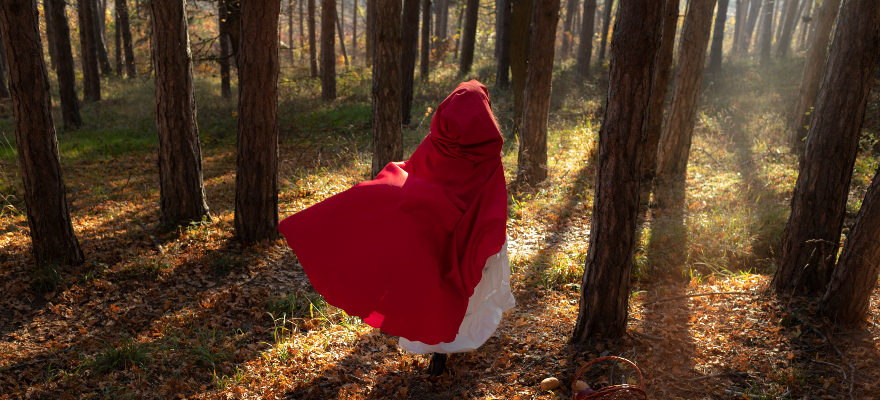I’m no stranger to George MacDonald. In fact, I would say I often feel like his welcome companion when I’m immersed in his fiction. A Quiet Neighborhood, Castle Warlock, or Sir Gibbie are places I’ve been to, and people I’ve visited in my imagination. But MacDonald also wrote a number of essays commenting on the fairy tale genre and his own writing.
In “The Fantastic Imagination,” MacDonald clarifies that fairy tales really have nothing to do with fairies, or at least they don’t have to. They do, however, have a “natural law” unto themselves as MacDonald writes. Our imagination won’t work without it.
This is what he means. When we create from our imaginations and write a story, we naturally follow a pattern of harmony. MacDonald explains it this way: If you were to give a bizarre accent to “the gracious creatures of some childlike region of Fairyland,” then wouldn’t the tale sink then and there? The pieces of the tale must harmonize and not stick out.
“Inharmonious, unconsorting ideas will come to a man, but if he try to use one of such, his work will grow dull, and he will drop it from mere lack of interest. Law is the soil in which alone beauty will grow; beauty is the only stuff in which Truth can be clothed; and you may, if you will, call Imagination the tailor that cuts her garments to fit her, and Fancy his journeyman that puts the pieces of them together, or perhaps at most embroiders their button-holes. Obeying law, the maker works like his creator; not obeying law, he is such a fool as heaps a pile of stones and calls it a church.”
George MacDonald
MacDonald continues with a lively question and answer section in his essay. He repeats questions I’m sure he must have heard many times during his literary tours at home and abroad.
“You write as if a fairytale were a thing of importance: must it have meaning?”
“If so, how am I to assure myself that I am not reading my own meaning into it, but yours out of it?”
“Suppose my child asks me what the fairytale means, what am I to say?”
And so on. We each bring our own meaning to what we read and what we experience as we read, but children don’t worry about such things. It seems only adults do.
This is where MacDonald introduces us to my favorite simile. Maybe it’s because it’s a musical term. Maybe it’s because it’s not black and white. But MacDonald says, “The true fairy tale is, to my mind, very like the sonata.” He argues that words aren’t as precise as we suppose. If a few men were to listen to a sonata and then write down what they thought it meant, the very action would destroy its effect upon them.
The tale is to be experienced, not analyzed. It is for the beauty, not for facts and knowledge. It should stir and wake us. “The best way with music, I imagine, is not to bring the forces of our intellect to bear upon it, but to be still and let it work on that part of us for whose sake it exists.”
To read MacDonald’s full essay found at the George MacDonald Society, click here. http://www.george-macdonald.com/etexts/fantastic_imagination.html
Featured photo by freepik
- Review: Reading for the Long Run - December 13, 2023
- 3 Medieval Fiction Novels for MG and YA Readers - March 8, 2023
- George MacDonald’s Fantastic Imagination - March 9, 2022

I’ve not heard this morsel from MacDonald before! I love the contrast between the music theorist who analyzes the inversions and resolutions of complicated chords and the layman who couldn’t define a triad, yet it is the latter who is more likely to be transported to Fairy Land by the sonata’s beauty!
Excellent article, Christine! Although George MacDonald is my favorite author, I had never heard of this paper before. It was a delight to read his quotes and your fantastic take on them.